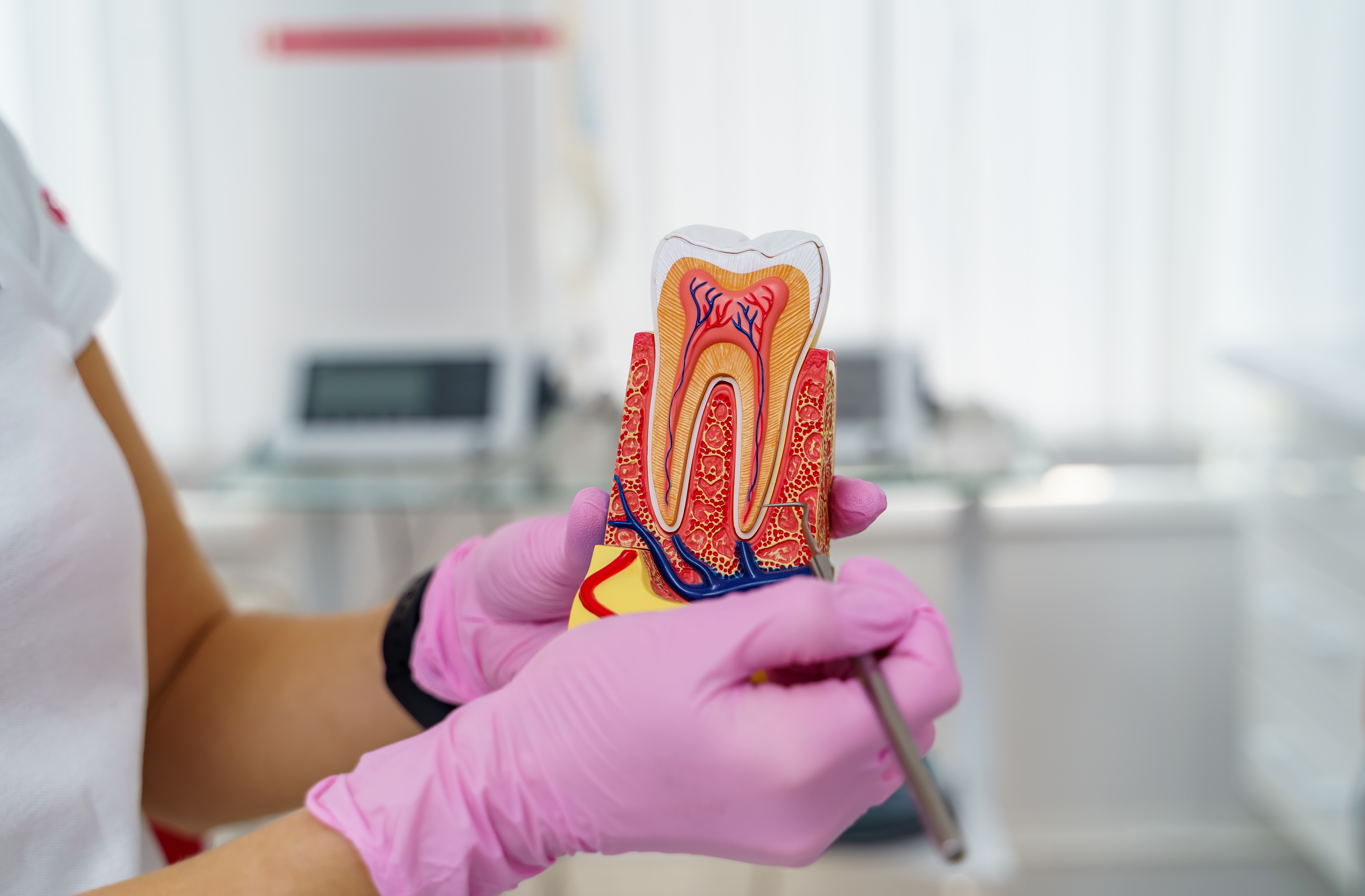 The fear of going to the dentist has long been a trope used in almost every medium of popular culture, but dental anxiety is a real problem for many people. An excessive nervousness or apprehension that builds before a dental appointment is not uncommon among many Americans. Even those who do not consider themselves to have anxiety may experience some discomfort at the thought of seeing the dentist. The causes of dental anxiety are rooted in several issues, and learning about those causes can be one way to overcome them.
The fear of going to the dentist has long been a trope used in almost every medium of popular culture, but dental anxiety is a real problem for many people. An excessive nervousness or apprehension that builds before a dental appointment is not uncommon among many Americans. Even those who do not consider themselves to have anxiety may experience some discomfort at the thought of seeing the dentist. The causes of dental anxiety are rooted in several issues, and learning about those causes can be one way to overcome them.
Causes of dental anxiety
Everyone is different, so no one person has the exact same fears when it comes to a dental appointment. However, these are several general categories from which most anxieties stem.
Fear from a past experience
Traumatic events can leave a person afraid of history repeating itself, and a bad time at the dentist’s office is no exception. If someone remembers a visit that caused pain or discomfort, they may be hesitant to return. Even experiences that caused no pain but were tedious and uncomfortable can lead to slight dental anxiety.
Fear of needles
When more intensive treatments are needed to repair a tooth, it is not surprising to see a needle in the dentist’s office. Many people have a general fear of needles. Being in a place that already makes a patient uncomfortable can double the anxiety that is felt beforehand.
Fear of pain
A mythos of horror has always circled dental offices because of negative stories and a tray of diabolical-looking instruments. More likely than that, however, is a past incident that caused pain in someone’s mouth. That can make a patient anxious that the pain will happen again or something worse will happen next time. Fortunately, dental treatment has become a fairly exact science in modern times, eliminating much of the potential for pain.
Check out what others are saying about our dental services on Yelp: Dental Anxiety in Dallas, TX.
Fear of loss of control and personal space
A patient is in the hands of the dentist during most of an appointment. It can feel embarrassing or uncomfortable to have no control over what is happening inside one’s own mouth. Personal space is easily breached by a dentist, causing anxiety that makes people avoid an appointment for too long.
How to handle dental anxiety
Avoiding the dentist can harm one’s oral health and cause greater problems in the future. There are ways to handle anxiety in a successful and healthy manner that allow patients to see the dentist on a regular basis.
Coping mechanisms
A patient can try practices like meditation, taking deep breaths, relaxing muscles, listening to music or watching something to distract from a future appointment. Techniques like these can calm the mind and make an appointment less stressful.
Therapy
If anxiety is severe, seeing a therapist may also help a patient cope with going to the dentist. A professional who specializes in behavioral therapy may be able to guide a patient through these fears.
Conclusion
Sometimes a good option for easing dental anxiety is simply informing the dentist about your specific fears. If a dentist understands what makes a patient uncomfortable, they can work to make the visit as easy as possible.
Request an appointment or call Lalangas Family Dentistry at 972-534-6008 for an appointment in our Dallas office.
Related Posts
When it comes to preserving a damaged or decayed tooth, patients often hear about two common options: a root canal or a filling. Understanding the difference between the two can help clarify why a general dentist chooses a specific approach based on the condition of the tooth. While both aim to restore function and prevent…
Dental implants are durable, natural-looking replacements for missing teeth. An implant dentist may recommend a single implant or multiple implants spaced throughout the mouth depending on how many teeth are missing and where. This blog will discuss when single or multiple implants are recommended, as well as the other tooth replacement options that can bolster…
When it comes to achieving a beautiful and confident smile, the expertise of an implant dentist is essential. Smile makeovers are a comprehensive dental procedure involving restoring and improving a patient's teeth and gums. With the latest advancements in dentistry, patients can achieve their dream smiles with the help of a dentist who specializes in…


